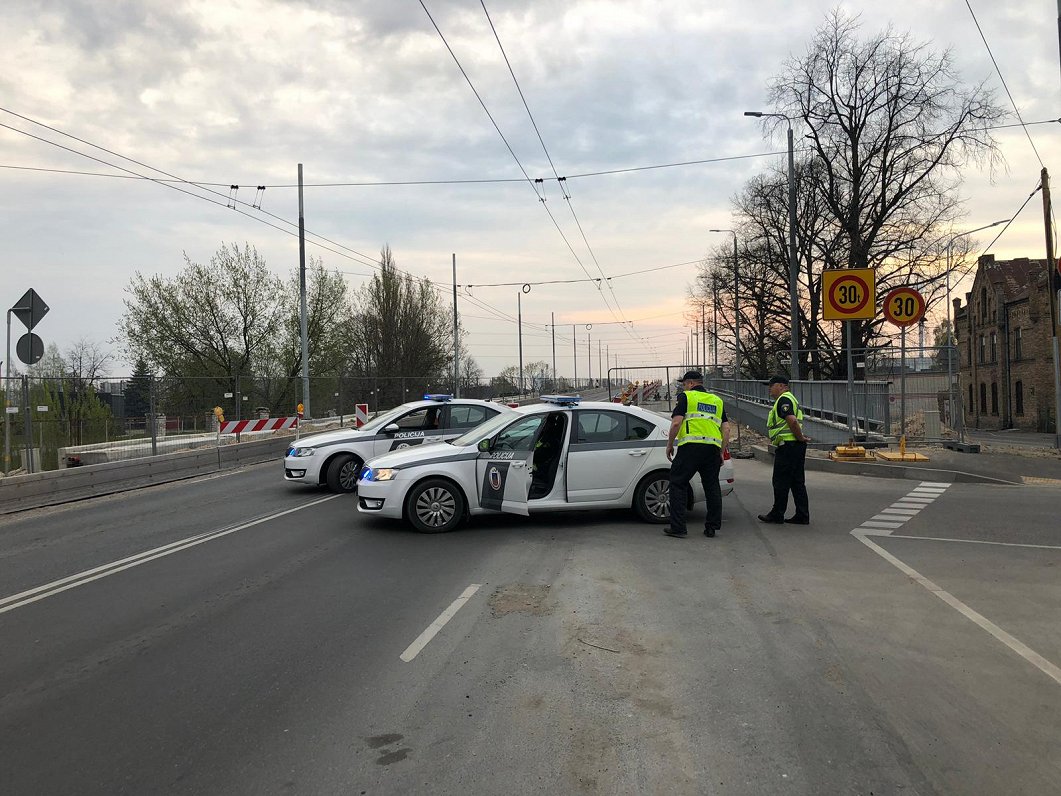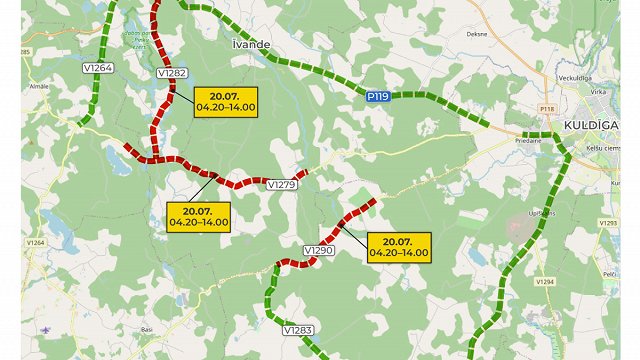Emīls Jakrins, acting head of the Traffic Department at the Rīga City Council, said that while detours are possible, traffic congestion is seen almost everywhere near the bridge.
"All the streets in the vicinity are rather congested and there are bottlenecks everywhere, therefore I don't need to stress some special locations," he said.
Jakrins said that railroad traffic has been reduced at peak hours so that more vehicles can pass the Tilta street crossing.
One trolley route that crossed the bridge has been closed off, while another trolley route and seven bus routes have been redirected.
Baiba Bartašēviča-Feldmane, a representative of the Rīgas satiksme municipal transport company said that delays are shorter than the first day. She said that the buses that crossed the bridge are now delayed 20 to 35 minutes.
As previously reported by LSM, the bridge was closed on the orders of Interior Minister Sandis Ģirģens after an engineering report drew attention to the bridge's poor state of repair - something also noticed by members of the public for some time.
Despite the closure of the bridge to vehicular traffic, it remains open to cyclists and pedestrians. The length of the closure is currently uncertain, being dependent upon a comprehensive assessment of its structural soundness and updated plans for renovation.
Rīga City Council had not moved to close the bridge, so the minister stepped in, citing public safety concerns and accusing the council of playing with people's lives.




























